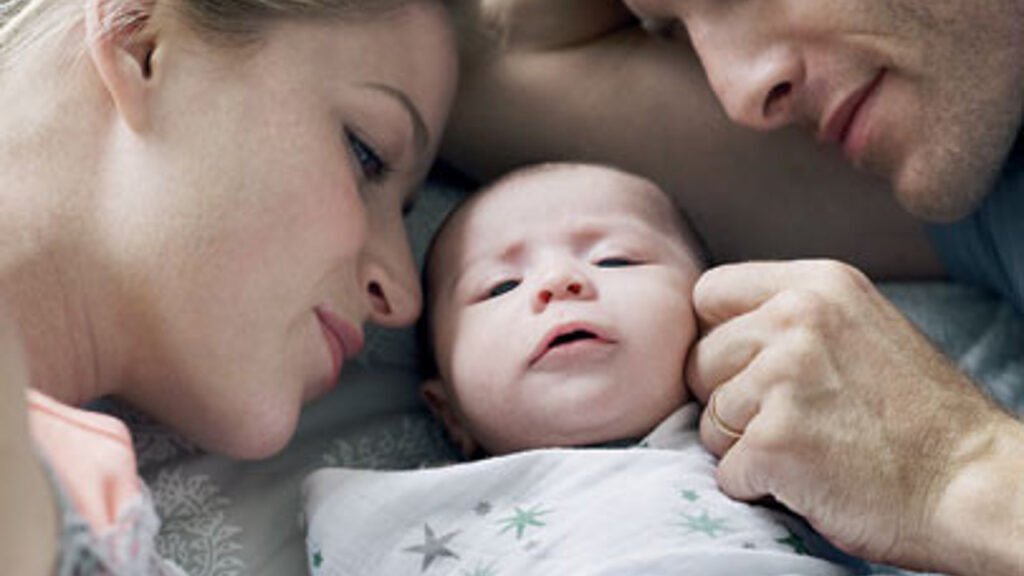
Bebek Sonrası Cinsel Hayat
What does a child feel when they catch their parents kissing?
This situation does not negatively impact the child. Kissing is an expression of love. Witnessing such an expression of affection does not adversely affect the child. However, seeing parents during intimate moments can have different effects at various ages, and generally, children may struggle to understand what they observe.
How should parents approach their child in this situation? Should they explain what they saw?
It’s essential to understand what the child interprets from what they have seen during the pre-adolescent period. If the child draws negative or confusing conclusions, it may be helpful for parents to clarify that they are not doing anything wrong without using abstract concepts that might further confuse the child.
How should sexuality be discussed with children?
Discussions should be held without embarrassment. Abstract concepts should be avoided at early ages. Untrue stories like “you were brought by storks” should not be relied upon. While communicating, it’s important to avoid embarrassment and to refrain from providing excessive information that is inappropriate for the child’s age.
Are there any disadvantages to a child seeing their parent naked?
There are no disadvantages to a child seeing their parent naked in early childhood. However, it would be beneficial for this situation to decrease and eventually end after the age of two. It’s crucial for parents to establish the boundaries of their own bodies to help the child learn about their own body limits and how to protect themselves. Notifications such as “I am in the shower, I am changing” can help the child learn where to set boundaries in relationships, thereby allowing them to know not to cross these boundaries and to protect themselves if someone does.
Do children who sleep with their parents experience negative effects on their sexual identity?
Sleeping together with a child does not negatively impact them when done healthily. However, if this continues into later childhood, it may affect the child’s self-esteem and individuality. It would not be accurate to say that their sexual identity is directly impacted by this arrangement. Written by: Nilgün Yıldız
There are many myths about the sexual lives of married couples. Whether you’re talking about the monotonous bedroom stories after having a child or the decrease in sexual encounters to once a week, it’s uncertain how much of this is true. However, it is factual that the dynamic of a couple’s sexual life changes after the arrival of a baby. Ultimately, when a child becomes the third party in the relationship, returning to a sexual life close to what it once was can take years. We asked Psychologist Yılmaz Erdal from Korto Psychology about our curiosities related to this subject.
How does co-sleeping with a child affect a couple’s sexual life?
Couples often face challenges in their sexual life during pregnancy and after childbirth. Continuing to sleep with the child can negatively impact the parents’ sexual life.
Do parents engage in sexual activities when the child is very young? Until what age can parents have sexual relations in the same room as the child?
It is more suitable for parents to engage in sexual activities in their private spaces. This is more appropriate both for the quality of the parents’ sexual life and for the child’s well-being.
Until what age is it appropriate for a child to sleep with their parents?
Sleeping in the same bed with the child is not inherently “bad.” However, consistently sleeping in the same bed or room until a very late age might hinder the development of some skills in the child. Different cultures have varying norms; thus, there is no single correct answer. From our cultural perspective, it is ideal for the child to stop sleeping with parents in the same bed or room by the ages of 2-3. This allows the child to learn to sleep safely on their own before regularly attending school or daycare, promoting well-being for both the child and the parents.
WHEN INDIVIDUALITY IS DELAYED
At what age should the child’s room be separated?
Ideally, by the ages of 2-3, the child’s bed or room should be transitioned into a peaceful, secure space where they can sleep comfortably. This separation process should not be postponed until after the child starts school, as it helps ease their adaptation to school. Children who sleep with their parents may face challenges when starting school.
What effects does sleeping with parents have on a child’s individual development?
Long-term co-sleeping with parents does not produce the same effects on every child. Generally, it can complicate the child’s understanding of boundaries in relationships. The easiest way for a child to grasp where their own boundaries and the boundaries of others lie is through clear distinctions: “this is yours, this is mine.” Furthermore, sleeping in the same bed can delay a child’s development into an independent individual.
Children who sleep with their parents for extended periods may have slower self-esteem development. What should parents keep in mind while separating their beds?
Parents must ensure they are ready to separate beds or rooms. The process often extends because parents may not feel prepared. Statements like, “I couldn’t do it, they cried too much, it’s okay if they sleep with us just this once” can make the process more challenging for the child.
How should bedding be separated?
If someone says you should separate beds immediately and you come home resolved to say, “this is finished, no more sleeping together,” I don’t believe that will be effective. Remember the reason for separating the bedding: supporting your child’s individualization process and self-esteem should be your primary goal. An angry attitude will not support this aim. It is better to gradually transition. Staying with the child until they fall asleep, sitting beside them, accompanying them to their bed, or spending a night together on weekends can facilitate a smoother transition over several weeks. Transitioning between stages should be clear, and the child should recognize the changes.
What to do if they insist on sleeping together?
Consistency and continuity are key! A child’s insistence indicates they are struggling to adapt to the situation. By consistently following the established plan, you help your child trust you and, in turn, themselves. Frequently changing your stance can make you appear unreliable in the eyes of your child.



